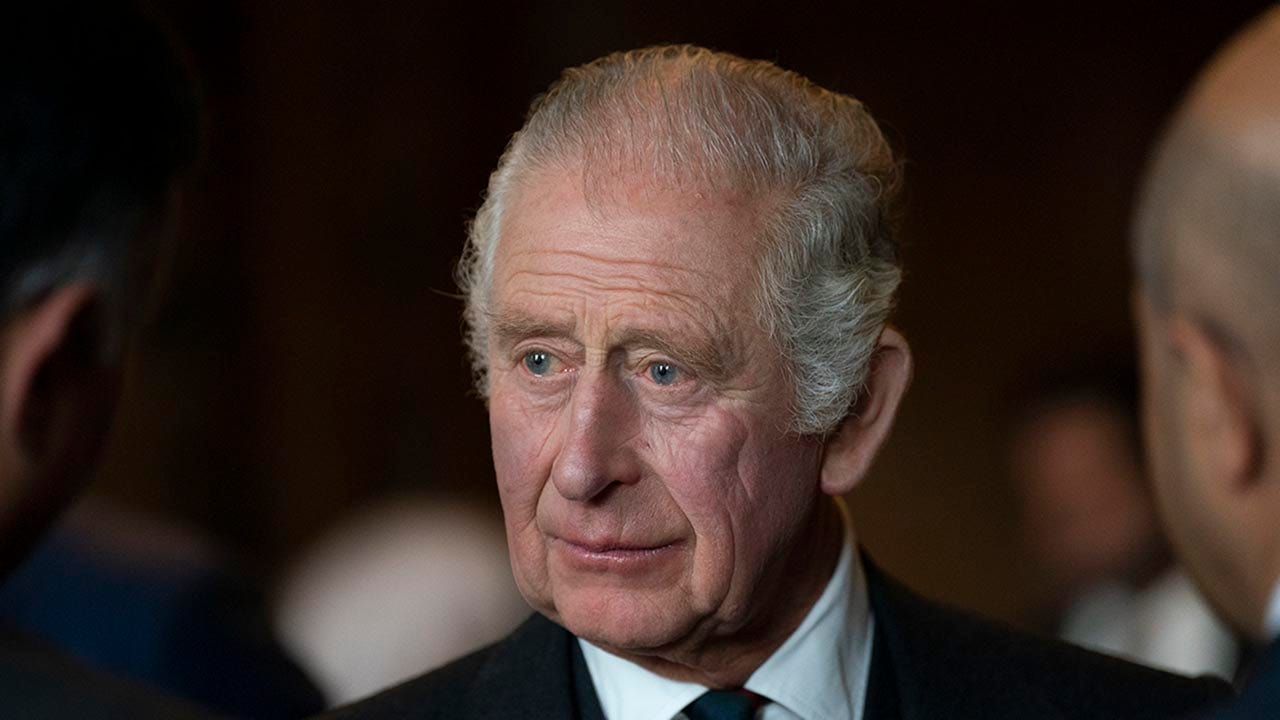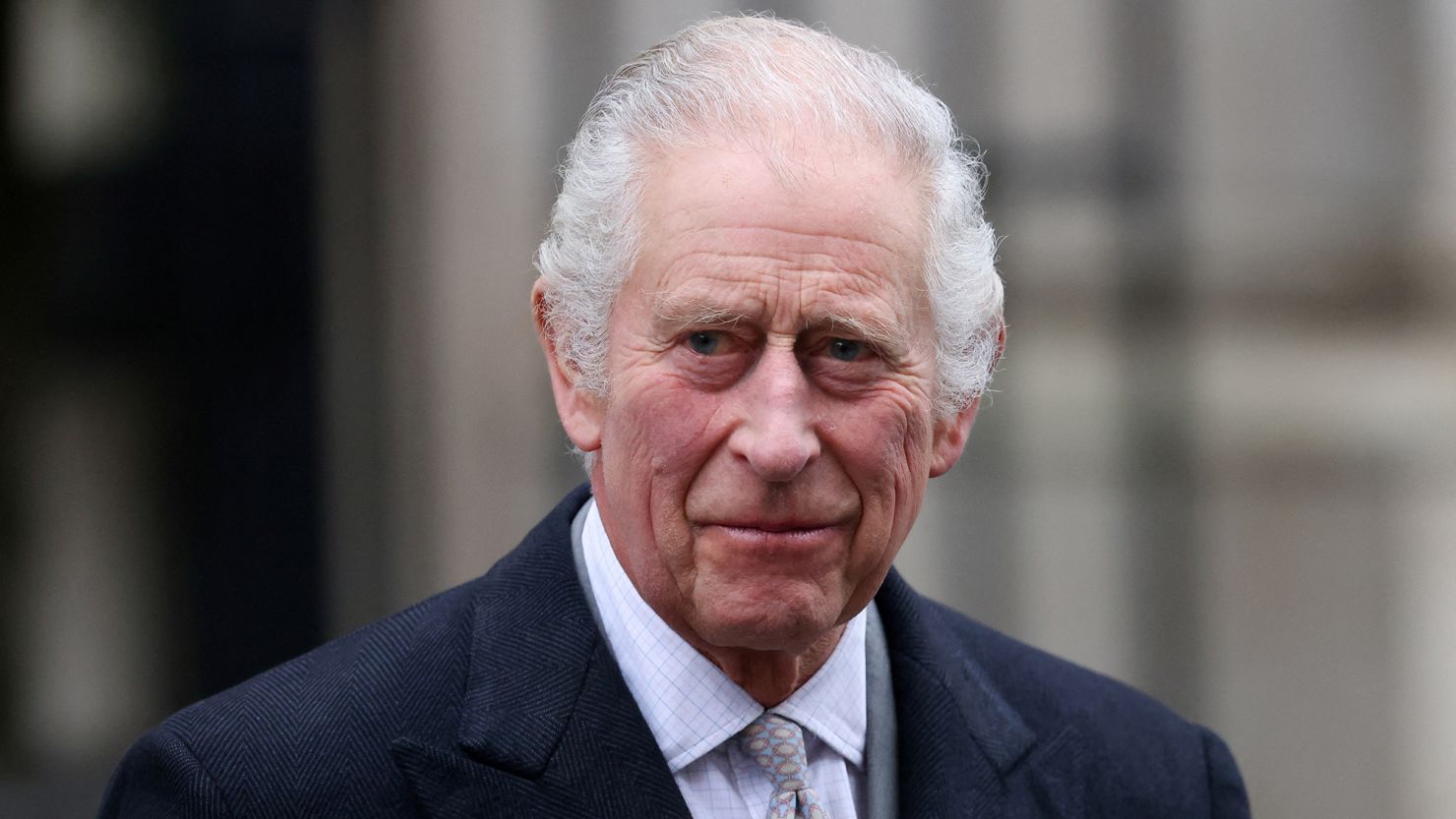King Charles III, the monarch of the United Kingdom and the Commonwealth realms, has been a figure of admiration and curiosity for millions worldwide. Recently, discussions surrounding King Charles and pancreatic cancer have sparked significant interest. This article delves into the topic, exploring the health challenges faced by the king and providing comprehensive insights into pancreatic cancer.
As the world watches closely, understanding the implications of pancreatic cancer in the life of King Charles is crucial. The disease remains one of the most challenging forms of cancer to diagnose and treat, making it a critical subject for discussion. This article aims to shed light on the king's journey and the broader implications of pancreatic cancer.
Through detailed analysis, we aim to provide a clear understanding of the disease, its impact, and the advancements in treatment. Let’s explore how pancreatic cancer affects not only the royal family but also millions of people globally.
Read also:Understanding The Power And Influence A Comprehensive Guide To Clout Meaning
Table of Contents
- Biography of King Charles III
- Overview of Pancreatic Cancer
- Symptoms of Pancreatic Cancer
- Diagnosis of Pancreatic Cancer
- Treatment Options
- King Charles and Pancreatic Cancer
- Advancements in Research
- Global Statistics
- Support for Patients
- Preventive Measures
Biography of King Charles III
King Charles III, born Charles Philip Arthur George on November 14, 1948, is the eldest son of Queen Elizabeth II and Prince Philip, Duke of Edinburgh. He ascended to the throne on September 8, 2022, following the passing of his mother. Throughout his life, King Charles has been a prominent figure in both the royal family and global politics.
Early Life and Education
King Charles spent his early years in the royal household, receiving a well-rounded education. He attended Cheam School and Gordonstoun, where he developed an interest in environmental issues and the arts. His dedication to these causes has been a hallmark of his public life.
Biodata
| Full Name | Charles Philip Arthur George |
|---|---|
| Birth Date | November 14, 1948 |
| Title | King Charles III |
| Spouse | Camilla, Queen Consort |
| Children | Prince William and Prince Harry |
Overview of Pancreatic Cancer
Pancreatic cancer is a complex and often aggressive form of cancer that affects the pancreas, a vital organ responsible for aiding digestion and regulating blood sugar levels. The disease is challenging to detect early, leading to a lower survival rate compared to other cancers.
Types of Pancreatic Cancer
There are two primary types of pancreatic cancer:
- Exocrine tumors: These account for the majority of pancreatic cancers and originate in the cells that produce digestive enzymes.
- Endocrine tumors: These are less common and arise from the hormone-producing cells of the pancreas.
Symptoms of Pancreatic Cancer
Recognizing the symptoms of pancreatic cancer is crucial for early diagnosis. However, the disease often presents with nonspecific symptoms, making it difficult to detect in its early stages.
- Jaundice
- Abdominal or back pain
- Unintended weight loss
- Loss of appetite
- Dark urine and pale stools
Diagnosis of Pancreatic Cancer
Diagnosing pancreatic cancer involves a combination of imaging tests, blood tests, and biopsies. Advanced imaging techniques such as CT scans, MRIs, and endoscopic ultrasounds are commonly used to identify tumors in the pancreas.
Read also:The Ultimate Guide To Neapolitan Pizza A Slice Of Culinary History
Biopsy Procedures
A biopsy is often necessary to confirm the presence of cancer cells. This procedure involves taking a small sample of tissue from the pancreas for further examination under a microscope.
Treatment Options
Treatment for pancreatic cancer depends on the stage and location of the tumor. Common treatment options include surgery, chemotherapy, and radiation therapy. In some cases, a combination of these treatments is used to achieve the best results.
Surgical Options
Surgery is often the preferred treatment for early-stage pancreatic cancer. Procedures such as the Whipple operation or distal pancreatectomy may be performed to remove the tumor.
King Charles and Pancreatic Cancer
While there has been speculation about King Charles and pancreatic cancer, official statements from the royal family have not confirmed any diagnosis. However, the king’s commitment to public health initiatives and his advocacy for cancer research highlight his dedication to addressing this global health challenge.
Royal Advocacy
King Charles has been a vocal supporter of cancer research and awareness campaigns. His involvement in organizations such as the Royal Marsden NHS Foundation Trust underscores his commitment to improving healthcare for all.
Advancements in Research
Recent advancements in pancreatic cancer research offer hope for improved treatment options. Scientists are exploring new therapies, including immunotherapy and targeted drug treatments, to enhance patient outcomes.
Immunotherapy
Immunotherapy involves harnessing the body’s immune system to fight cancer cells. This innovative approach has shown promise in treating various types of cancer, including pancreatic cancer.
Global Statistics
Pancreatic cancer remains one of the leading causes of cancer-related deaths worldwide. According to the World Health Organization (WHO), approximately 466,000 new cases of pancreatic cancer are diagnosed each year, with a mortality rate exceeding 90%.
Survival Rates
The five-year survival rate for pancreatic cancer is one of the lowest among all cancers, highlighting the urgent need for better diagnostic tools and treatments.
Support for Patients
Support for pancreatic cancer patients and their families is crucial during the treatment process. Various organizations offer resources, counseling, and financial assistance to help those affected by the disease.
Community Support
Community-based programs and support groups provide a platform for patients to share experiences and receive emotional support. These initiatives play a vital role in improving the quality of life for individuals battling pancreatic cancer.
Preventive Measures
While there is no guaranteed way to prevent pancreatic cancer, certain lifestyle changes can reduce the risk. Maintaining a healthy diet, avoiding smoking, and regular exercise are essential steps in reducing the likelihood of developing the disease.
Healthy Living
A balanced diet rich in fruits, vegetables, and whole grains, combined with regular physical activity, can significantly lower the risk of pancreatic cancer. Additionally, managing stress and maintaining a healthy weight contribute to overall well-being.
Conclusion
In conclusion, the topic of King Charles and pancreatic cancer underscores the importance of understanding this challenging disease. Through advancements in research, improved diagnostic tools, and supportive care, the outlook for pancreatic cancer patients continues to improve.
We encourage readers to share this article and engage in discussions about pancreatic cancer awareness. Together, we can support research efforts and advocate for better healthcare policies. For more information, explore our other articles on health and wellness topics.
References:
- World Health Organization (WHO) – Global Cancer Statistics
- American Cancer Society – Pancreatic Cancer
- Royal Marsden NHS Foundation Trust – Cancer Research


